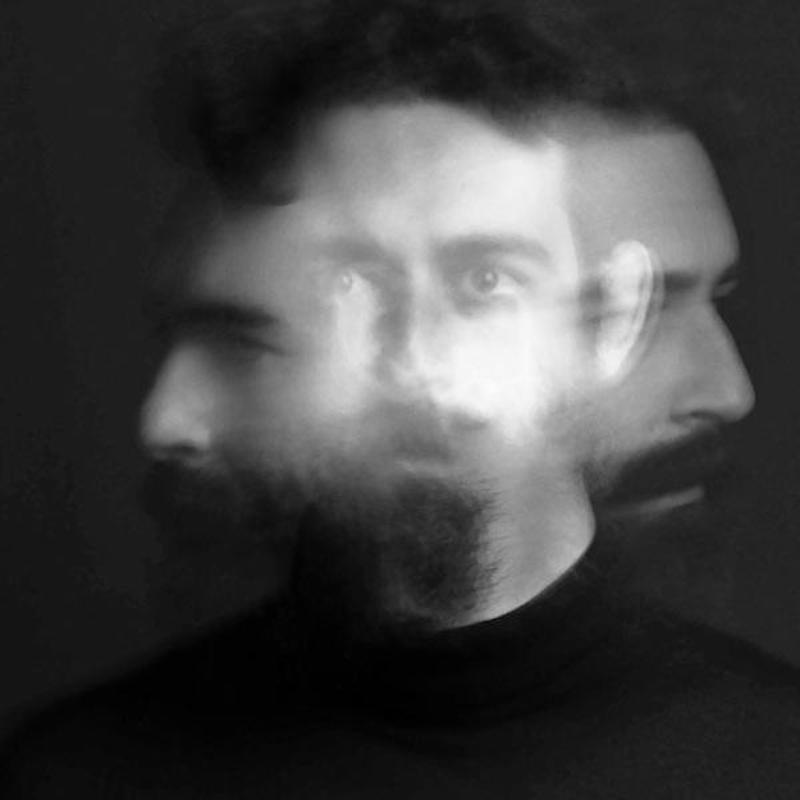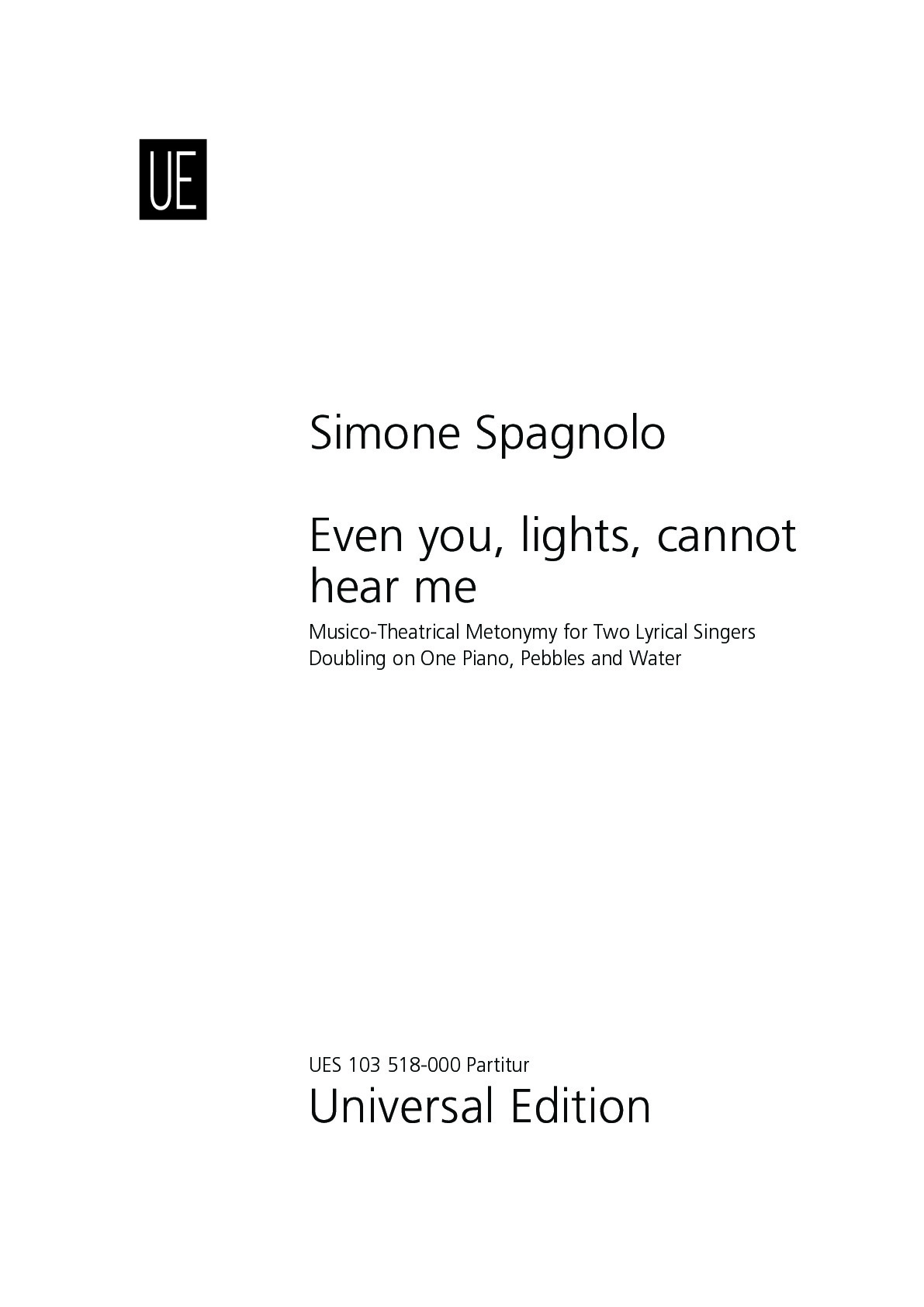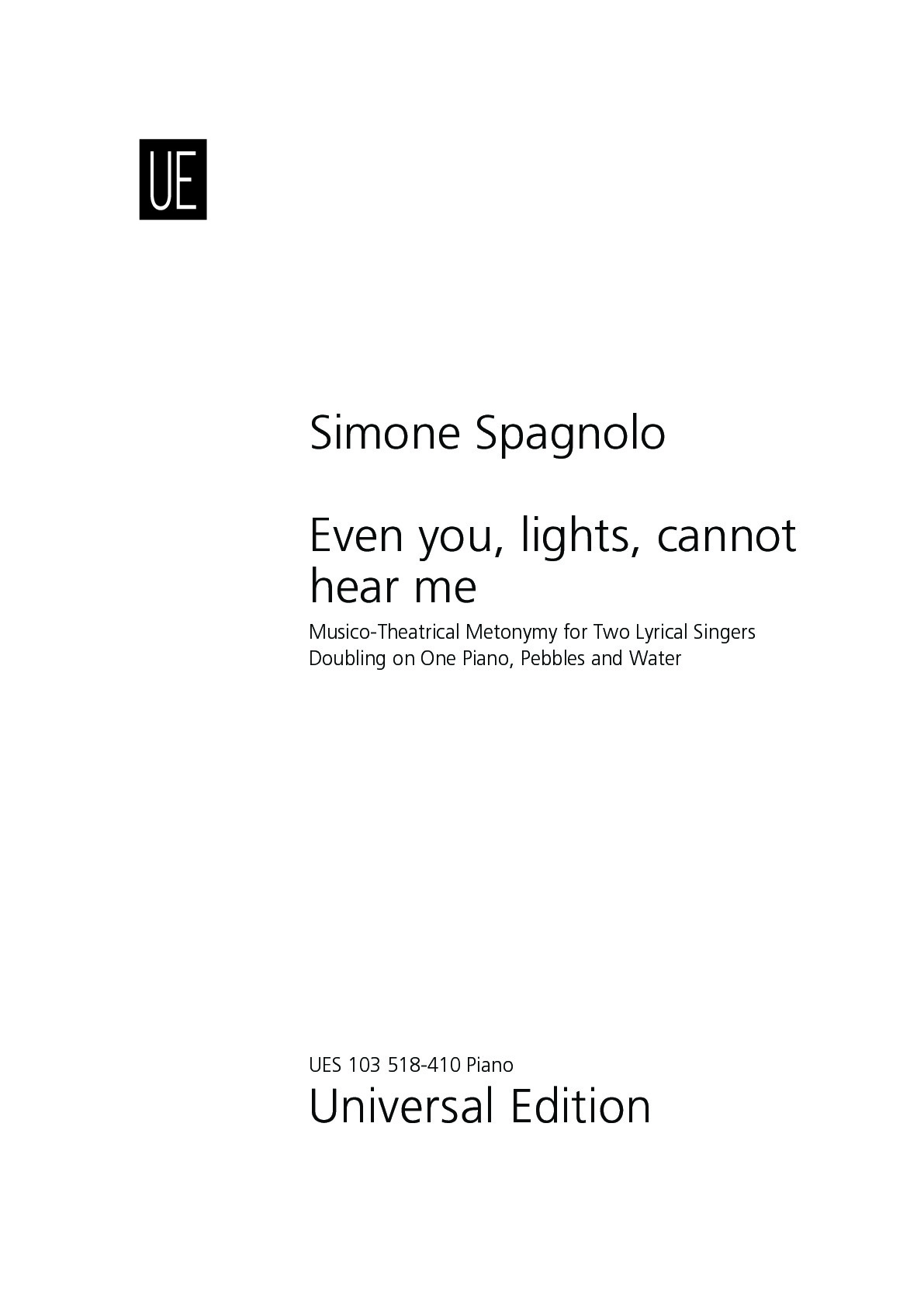

Simone Spagnolo
Even you, lights, cannot hear me
Duration: 25'
Libretto von: Anthon Chekhov
Solos:
mezzo-soprano
bass
Roles:
Anima Animus
Instrumentation details:
piano
Even you, lights, cannot hear me
Printed/Digital
Translation, reprints and more

Simone Spagnolo
Even you, lights, cannot hear meType: Dirigierpartitur
Language: Englisch (Großbritannien)

Simone Spagnolo
Klavier (Even you, lights, cannot hear me)Type: Stimme
Language: Englisch (Großbritannien)
Sample pages
Work introduction
Exploring a futuristic and elegiac vision of the end of time, Even you, lights, cannot hear me is an operatic spectacle based on a monologue from Anton Chekhov’s The Seagull. Two singers, depicted as two beings embodied into one entity, wander a surreal, yet exquisite cosmos, in which nothingness and wholeness coexist, timelessly.
This work originally arises from the wish to give a whole new life to Chekhov’s powerful writing, whilst challenging the contemporary notion of opera and music-theatr. Somehow, Even you, lights, cannot hear me can be described as a performance-art piece, a chamber opera, an experimental piece of music theatre, or - as the subtitle indicates - a musico-theatrical metonymy. It is a work that sits across interdisciplinary boundaries.
Set in an imaginary outer space, the two singers-pianists sit on a rotating stool, back to back, like a two-headed creature that sings, acts and plays. The music solely articulate notes from the harmonic series, which gradually travel through all twelve keys. Eventually, whilst the twelves overtones series ultimately superimpose each other, the two-headed entity separates and dissolves, offering the listener/viewer a glimpse of life after the world’s end.
Even you, lights, cannot hear me's English text is translated by Dimitry Devdariani.
Critical Reviews
“Spagnolo’s music both stimulates and satisfies the ear, at once modern, eerie and undeniably beautiful” (5-Star Review on Operissima, August 2017)
“The subject matter is a hard ask: just as in Milton’s vision of Heaven, it is tough to bring the ineffable to memorable dramatic and musical life. But if a combination of wholeness and nothingness can be depicted at all there is no reason to suppose that it would not sound like this etiolated and astringent sound-world where time is suspended too. This is a piece that definitely requires more than one hearing to reveal its various layers. One hopes that it will be taken up by other companies.” (5-Star Review on Live Theatre UK, August 2017)
What is necessary to perform this work?
This work would benefit from a directorial vision and coordination, as well as a theatrical environment with lights, props and costumes. Although, it can also be performed within a concert setting.
The two singers-pianists should sit back to back, as indicated in the Directorial and Stage Notes (to be found within the score) on a rotating stool. The piano part is fully designed to accommodate such a seating position and the players rotation.
